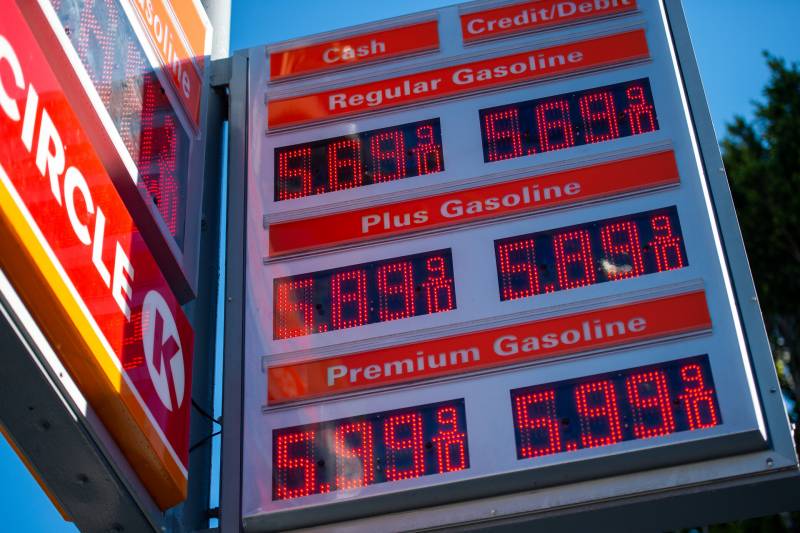As we speak this morning, the average price of a gallon of regular gas is now over $5.50 here in California. I know you don't have a crystal ball in front of you, but how much higher should we expect to see those numbers go?
Unfortunately, it's really very difficult to tell. It depends entirely on whether Vladimir Putin decides to push forward with his invasion of Ukraine or to pull back. If he did decide this isn't worth the losses and to declare victory and withdraw, oil prices would drop dramatically and gasoline prices would follow within a few weeks. On the other hand, if he continues to push into Ukraine and manages to actually defeat the Ukrainian resistance, we are very likely going to move towards a large-scale worldwide reduction in sales from Russia. And that means that the price of oil is likely to stay high for a very long time because replacing all of Russia's production would be very difficult and would not happen quickly.
In response to high gas prices, there have been calls to roll back the gas tax and rev up new drilling. What do you think when you hear those kind of ideas put on the table? Are they feasible to do?
Well, they're feasible to do. I think they'd both be bad policy. The gas tax is there for a reason. It pays for a loss of the infrastructure we need, and it helps represent the real damage that is inflicted when people burn gasoline and create congestion on roads and so forth. So in our research, we've actually found that the gas tax is still less than all of those effects that people have what we call externalities when they burn gasoline. As far as drilling for more oil, there's a world market for crude oil, even if California did produce an extra 10 or 20 or 50 percent of California's current production. It would have a very tiny effect on the world price of crude oil, and that's what drives the price of gasoline everywhere, including in California.
Do you have any kind of street-level advice for California consumers right now as they confront high gas prices?
People are impacted by high gasoline. Prices can do some things to reduce the impact, and the primary thing you can do right away is shop around for cheaper gasoline because there is huge price dispersion between stations, even sometimes on the same block where there's 50 or 75 percent of gallon differentials go to the cheaper station. That not only will help save you money, but it will put pressure on the expensive stations to lower their prices, and so we can get a more competitive market in California if we are willing to shop around more.

